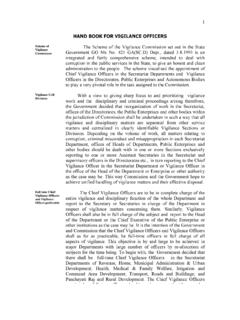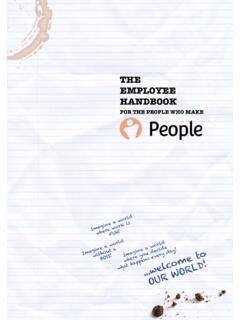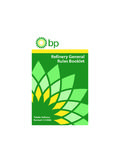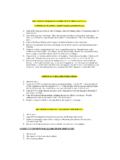Transcription of HAND BOOK ON DISCIPLINARY PROCEEDINGS FOR ... - a P
1 For official use only HAND book ON DISCIPLINARY PROCEEDINGS FOR DISCIPLINARY AUTHORITIES, INQUIRING AUTHORITIES AND PRESENTING OFFICERS Contents Sl. Subject Page No. 1. Object of the Hand book 2. Importance of Procedure, in DISCIPLINARY PROCEEDINGS 3. Article 311 of the Constitution 4. Rules 20, 21 of AP. CS. (CCA) Rules 5. Conduct Rules 6. Government servant 7. Application to other Services and Undertakings 8. Basis for DISCIPLINARY PROCEEDINGS 9. DISCIPLINARY Authority, King-pin 10. Drawing up of Charge-sheet 11. Delivery of the charge sheet together with copies of documents and statements of witnesses 12. Serving of charge sheet 13. Articles of charge 14. Specimen Article of charge 15.
2 Statement of Imputations 16. Witnesses 17. Documents 18. Memorandum 19. Action on receipt of statement of defence 20. Where the Charged Government servant pleads guilty 21. Appointment of Inquiring Authority 22. Appointment of Presenting Officer 23. Defence Assistant 24. Defence documents 25. Documents which are not relevant 26. Documents, where privilege is claimed 27. Privileged Documents, examples 28. Charge-sheet etc forwarded to Inquiry Officer 29. Evidence on behalf of DISCIPLINARY Authority 30. New evidence on behalf of DISCIPLINARY Authority 31. Summoning of Witnesses 32. Examination of witnesses of DISCIPLINARY Authority 33. Cross-examination of Witnesses 34. Re-examination of Witnesses (i) 35. Examination of Witness by Inquiry Officer 36. Where a witness turns hostile 37. Recording of Evidence 38.
3 Defence of Government servant 39. Evidence on behalf of Government servant 40. Government servant questioned on evidence 41. Oral Arguments/Written Briefs 42. Requests, Representations etc during Inquiry 43. Daily Order Sheet 44. Report of Inquiry Officer Factors for consideration 45. Charge where proved in-part 46. Where a different charge is proved 47. Inquiry Report what it should contain 48. Record of Major Penalty PROCEEDINGS 49. Inquiry Officer to forward record of inquiry to DISCIPLINARY Authority 50. Inquiring Authority, functus officio 51. Functions and Powers of Inquiring Authority 52. Action on Inquiry Report 53. Further Inquiry 54. DISCIPLINARY authority disagreeing with the Inquiry officer, need not contest the conclusions 55.
4 Imposition of Penalty 56. Order on Inquiry Report 57. Orders where charges held not proved 58. Show Cause Notice 59. Consultation with the Vigilance Commission 60. Consultation with Public Service Commission 61. Consultation with Anti-Corruption Bureau 62. Inquiry Report etc, furnishing of copy to ACB 63. Special Provisions of procedure 64. Ex parte inquiry 65. Change of Inquiring Authority 66. Where DISCIPLINARY Authority is not competent 67. Higher authority which instituted PROCEEDINGS alone competent to impose even a minor penalty 68. Common PROCEEDINGS 69. Time limits (ii) 70. Related issues of DISCIPLINARY PROCEEDINGS 71. Evidence Act 72. Principles of Natural Justice 73. Standard of proof 74. Order passed by Inquiry Officer not appealalbe 75.
5 Adjournments 76. Stay by Court 77. Further inquiry, where order set aside on technical grounds 78. Fresh Inquiry, in case PROCEEDINGS are quashed by court on technical grounds 79. Procedural defect after conclusion of Oral Inquiry Fresh PROCEEDINGS from the stage of defect 80. Role of DISCIPLINARY Authority, the sole Judge 81. Action against DISCIPLINARY Authority for lapses in conducting PROCEEDINGS (iii) HAND book ON DISCIPLINARY PROCEEDINGS FOR DISCIPLINARY AUTHORITIES, INQUIRING AUTHORITIES AND PRESENTING OFFICERS 1. Object of the Hand book The procedure prescribed under the Andhra Pradesh Civil Services (Classification Control and Appeal) Rules, 1991 ( CCA Rules for short) for imposition of major penalties on Government servants of the Andhra Pradesh State.
6 Is set out here, for the guidance of the DISCIPLINARY authorities, inquiring authorities and presenting officers, who are the primary functionaries dealing with DISCIPLINARY cases. 2. Importance of Procedure, in Discsiplinary PROCEEDINGS DISCIPLINARY PROCEEDINGS lay down the procedure that is required to be followed by the competent authorities for the purpose of establishing the truth or otherwise of an allegation of misconduct leveled against a Government servant, and in the event of the Government servant being held guilty of the charge, to impose on him a prescribed penalty, in strict conformity with the provisions of the APCS (CCA) Rules, 1991 applicable to him. If the departmental authority holds the inquiry in violation of the prescribed procedure, the findings and the decision are liable to be set aside by the departmental authorities and courts.
7 More cases are lost for technical lapses, few for want of proof. It is so, because some : evidence is sufficient to sustain the charge and judicial review does not interfere with the findings of fact arrived at in DISCIPLINARY PROCEEDINGS and it is confined to examination of the decision-making process. Hence, it is necessary that the functionaries charged with the task of conducting DISCIPLINARY PROCEEDINGS should equip themselves with a thorough knowledge of the procedural requirements; and the Hand book with the ready-at-hand, easy-to-refer information will be found invaluable. 3. Article 311 of the Constitution The Procedure that is required to be followed in imposing major penalties on civil officials is laid down in Article 311 of the Constitution of India.
8 The Article is extracted below. 311. Dismissal, removal or reduction in rank of persons employed in civil capacities under the Union or a State :- (1) No person who is a member of a civil service of the Union or an All-India Service or a civil service of a State or holds a civil post under the Union or a State shall be dismissed or removed by an authority subordinate to that by which he was appointed. (2) No such person as aforesaid shall be dismissed or removed or reduced in rank except after an inquiry in which he has been informed of the charges against him and given a reasonable opportunity of being heard in respect of those charges: Provided that where it is proposed after such inquiry, to impose upon him any such penalty, such penalty may be imposed on the basis of the evidence adduced during such inquiry and it shall not be necessary to give such person any opportunity of making representation on the penalty proposed.
9 (Provided further .. ) (3) If, in respect of .. Government servants (the subject of the study) are civil officials mentioned in Article 311 of the constitution, and the constitutional provisions laid down there under would apply to Government servants of the State. Article 311 of the Constitution, extracted above, lays down that-- (i) an inquiry should be conducted; (ii) the civil official should be informed of the charges against him; (iii) he should be given a reasonable opportunity of being heard in respect of those charges; (iv) a penalty may be imposed on the basis of the evidence adduced during the inquiry; (v) he shall not be dismissed or removed by an authority subordinate to that by which he was appointed. Explaining the above constitutional provisions, the Supreme Court held that the rules of natural justice require that - - (i) charged employee should be given notice of the charges he is called upon to explain and the allegations on which those were based; (ii) evidence should be taken in the presence of the charged employee; (iii) he should be given an opportunity to cross-examine the prosecution witnesses; (iv) he should have an opportunity of adducing all relevant evidence on which he relies.
10 No material should be relied against him without giving him an opportunity of explaining such Non-compliance with the constitutional requirements or deviation there from will render the PROCEEDINGS null and void. 4. Rules 20, 21 of AP. CS. (CCA) Rules The Andhra Pradesh Civil Services (CCA) Rules, 1991 in turn elaborated the procedure required to be followed, step by step, stage by stage, under Rules 20 and the procedure laid down under the said rules meets the constitutional requirements. 5. Conduct Rules The AP CS (Conduct) Rules, 1964 lay down principles as to what the Government expects the Government servant to do and not to do, and Rule 3 thereof stipulates that the Government servant shall maintain absolute integrity and devotion to duty and do nothing which is unbecoming of a Government servant.






